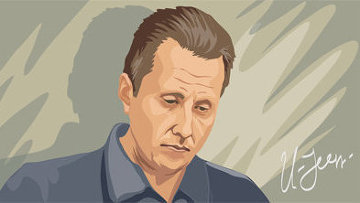MOSCOW, January 25 - RAPSI, Maria Petrova. Russia owes former YUKOS security chief Alexei Pichugin €9,500, in compliance with a judgment issued by the European Court of Human Rights (ECHR) in October establishing that Pichugin's Russian trial had been unfair, his attorney Ksenia Kostromina told RAPSI Friday.
She added that both Russia and the ECHR have remained silent on the state's obligation to Pichugin.
The former YUKOS security chief was sentenced to life imprisonment in 2007 after a Russian court convicted him of having planned the 1998 assassination of Nefteyugansk mayor Vladimir Petukhov, as well at the attempted assassination of former YUKOS CEO Mikhail Khodorkhovsky's adviser Olga Konstina that same year.
This sentence was stacked onto a 20-year sentence he had been handed in 2005 for murder and attempted murder.
On October 23 of last year, the ECHR held that Russia had violated Pichugin's right to a fair trial. According to the ECHR Rules of Procedure, parties to a case are granted three months from the time a judgment is rendered to launch an appeal. Thus the three month window would have passed on Wednesday.
"The European Court's ruling should have normally taken effect by now," Kostromina said. "I do not have any information that an appeal has been submitted against the ruling. I also haven't received a letter from the European Court, stating that the ruling has taken effect."
She added that she planned to file an appeal with the Supreme Court to cancel Pichugin's sentence and the cassation ruling in the first case against him.
In his application, Pichugin asked the ECHR to recognize that three articles of the European Convention on Human Rights were violated during the consideration of the first case - Article 3 on the prohibition of torture, Article 5 on the right of liberty and security, and Article 6 on the right of a fair trial.
In ruling that Russia had violated Article 6, the court awarded Pichugin 9,500 as compensation for moral harm and legal fees.
The YUKOS case has been one of the most high profile in Russia in recent years. In the early 2000s, the authorities accused Khodorkovsky and his partner Platon Lebedev of economic crimes. The arrests and trials of a number of other company members soon followed. YUKOS, then the country's largest oil company, went bankrupt and its assets were taken over by Rosneft. Many in the West believe that the case was politically driven, although Moscow denies the charges.



